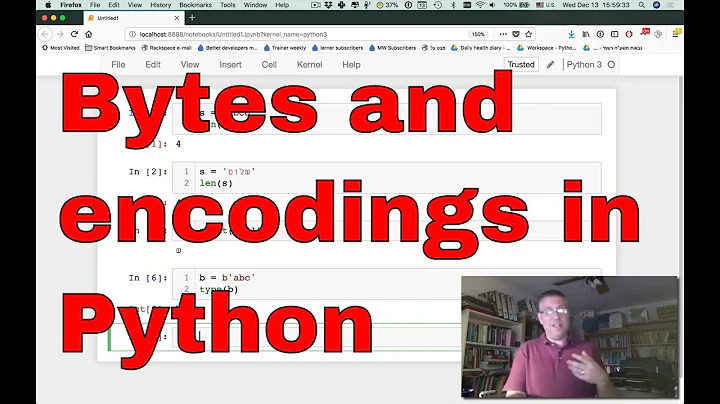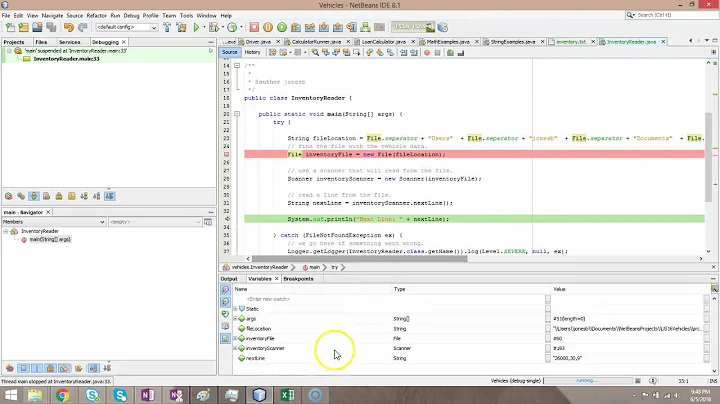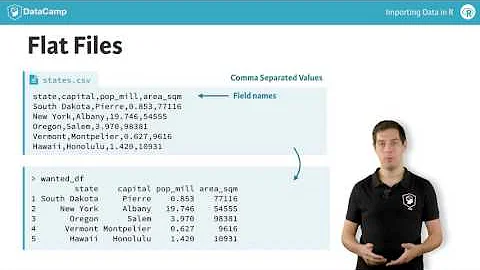How to read bytes object from csv?
Solution 1
If your input file really contains strings with Python syntax b prefixes on them, one way to workaround it (even though it's not really a valid format for csv data to contain) would be to use Python's ast.literal_eval function @Ryan mentioned although I would use it in a slightly different way, as shown below.
This will provide a safe way to parse strings in the file which are prefixed with a b indicating they are byte-strings. The rest will be passed through unchanged.
import ast
import csv
def _parse_bytes(field):
""" Convert string represented in Python byte-string literal b'' syntax into
a decoded character string - otherwise return it unchanged.
"""
result = field
try:
result = ast.literal_eval(field)
finally:
return result.decode() if isinstance(result, bytes) else field
def my_csv_reader(filename, /, **kwargs):
with open(filename, 'rt', newline='') as file:
for row in csv.reader(file, **kwargs):
yield [_parse_bytes(field) for field in row]
reader = my_csv_reader('bytes_data.csv', delimiter=',')
for row in reader:
print(row)
Solution 2
The easiest way is as below. Try it out.
import csv
from io import StringIO
byte_content = b"iam byte content"
content = byte_content.decode()
file = StringIO(content)
csv_data = csv.reader(file, delimiter=",")
Solution 3
You can use ast.literal_eval to convert the incorrect fields back to bytes safely:
import ast
def _parse_bytes(bytes_repr):
result = ast.literal_eval(bytes_repr)
if not isinstance(result, bytes):
raise ValueError("Malformed bytes repr")
return result
Related videos on Youtube
gitmorty
Updated on June 04, 2022Comments
-
 gitmorty almost 2 years
gitmorty almost 2 yearsI have used tweepy to store the text of tweets in a csv file using Python
csv.writer(), but I had to encode the text in utf-8 before storing, otherwise tweepy throws a weird error.Now, the text data is stored like this:
"b'Lorem Ipsum\xc2\xa0Assignment '"I tried to decode this using this code (there is more data in other columns, text is in 3rd column):
with open('data.csv','rt',encoding='utf-8') as f: reader = csv.reader(f,delimiter=',') for row in reader: print(row[3])But, it doesn't decode the text. I cannot use
.decode('utf-8')as the csv reader reads data as strings i.e.type(row[3])is'str'and I can't seem to convert it intobytes, the data gets encoded once more!How can I decode the text data?
Edit: Here's a sample line from the csv file:
67783591545656656999,3415844,1450443669.0,b'Virginia School District Closes After Backlash Over Arabic Assignment: The Augusta County school district in\xe2\x80\xa6 | @abcde',52,18Note: If the solution is in the encoding process, please note that I cannot afford to download the entire data again.
-
 tripleee over 6 yearsWhatever produced that CSV is broken and should be repaired.
tripleee over 6 yearsWhatever produced that CSV is broken and should be repaired.
-
-
 gitmorty over 6 yearsThank you. This does solve the case above, but I don't feel comfortable using eval(). It even fails on my file, as it has header strings.
gitmorty over 6 yearsThank you. This does solve the case above, but I don't feel comfortable using eval(). It even fails on my file, as it has header strings. -
 martineau over 6 yearsgitmorty: I think @Ryan's idea of using
martineau over 6 yearsgitmorty: I think @Ryan's idea of usingast.literal_eval()instead ofeval()is a good one and have incorporated the basic idea into my own answer—which I think addresses both the issues you mentioned in your comment.









![Read CSV C# - Write CSV C# [C# CsvHelper] - C# CSV Parser - Read/Write CSV Files in C#](https://i.ytimg.com/vi/cqdJvIJlILg/hq720.jpg?sqp=-oaymwEcCNAFEJQDSFXyq4qpAw4IARUAAIhCGAFwAcABBg==&rs=AOn4CLCt_C5L3NG1G25W1oHMWSJkWkpGIQ)